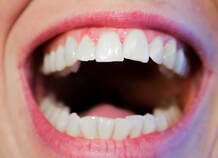
In fact, your total microbiome is made up of bacteria in every area of your body - from your sinuses, to your mouth, your gut, and even your vaginal canal (if you have one of those). Supporting the healthy bacteria in these areas helps to not only prevent unhealthy pathogens from taking over, but it boosts your immune system and improves your overall health in general.
Many commonsense health practices that are good for your body in general also support your microbiome, such as eating a varied diet with lots of fruits, vegetables, and fiber, getting plenty of sleep and exercise, and avoiding alcohol and tobacco. But there are also specific things you can do to support your healthy colonies of bacteria in each area of your body.
Today, we are discussing a few things you can do to help support your oral microbiome - an important but often-overlooked area of health - as your mouth is one of the most common ways that pathogens enter your body.
But one aspect that modern dentistry has not addressed is the health of the oral microbiome. How these important bacteria influence our dental health - and our health as a whole - has not been something that has received a lot of attention - at least not from the mainstream medical profession.
As it turns out, dental practices that are designed to routinely kill bacteria (such as the use of antibacterial mouthwashes) may actually be harming our health instead of protecting it. This is because your mouth contains at least 700 different species of bacteria, many of which perform crucial jobs such as regulating your blood pressure, improving immune system function, and aiding the body in synthesizing and absorbing vitamins and other nutrients. Our standard anti-bacterial approach to oral care may in fact be disrupting all of these important processes and more!
How?
This helpful quote from Fix.com explains:
Think about what happens when you bulldoze a garden and leave behind bare soil. Invasive weeds eagerly come in to fill the space. The same thing may happen in your mouth when you regularly wipe out the microbiome, except, in this case, opportunistic pathogens eagerly colonize.
1. Stop Wiping Out Your Oral Bacteria
Broad-spectrum antibacterial mouthwashes and rinses get rid of the good stuff along with the bad. Be cautious about using these products - especially if they say they "kill 99% of the germs in your mouth"! Knowing what we now know about beneficial bacteria, killing everything off is NOT a good idea! Instead, if you absolutely must use an antimicrobial oral therapy, use it carefully as you would a medicine - as a temporary, targeted treatment for a specific issue and only for a limited time.
Another way that your oral bacteria may be negatively impacted is by the water that you drink. Most municipal water supplies contain chlorine, which is designed to kill bacteria. Killing pathogens in our water is an important issue for public health, but that doesn't mean it's good for you to be drinking the remainder. Chlorine (or chloramine) that remains in your drinking water can not only upset the balance of your oral microbiome, but it may also harm your gut bacteria, as well as posing other dangers to your overall health. Find out what type of disinfectant is used in your local water supply (either chlorine or chloramine), and filter your water before drinking it with an appropriate filter that will remove the residual chemicals.
2.) Adopt Healthy Habits
While we tend to think of the health of our teeth and gums as separate from the health of our body, in fact they are closely connected, and one impacts the other. Adopting healthy habits such as regular exercise, a healthy diet, getting enough sleep, and avoiding tobacco and alcohol can all help support your microbial health - as well as your overall health in general.
3.) Support Your Healthy Bacteria
Eating healthy (lots of diverse food groups including plenty of colorful fruits and vegetables and healthy fats, while avoiding sugar and processed carbohydrates) is one of the best ways to support your healthy colonies of bacteria, but you can also help to increase your bacterial health by adding fermented foods to your diet.
Humans enjoyed a wide variety of fermented foods for thousands of years before the advent of refrigeration, and some health experts theorize that the lack of fermented foods in our diet today may be the reason for some of the modern health issues we are facing.
Yogurt, kefir, kombucha, kimchi, sauerkraut, and other fermented foods and beverages are great sources of beneficial microbes that can help replenish your microbiome - not just in your gut, but also in your mouth as well. Just add them into your diet slowly if you aren't used to eating fermented foods.
For more tips for caring for your oral microbiome, check out the interesting infographic below...




 RSS Feed
RSS Feed